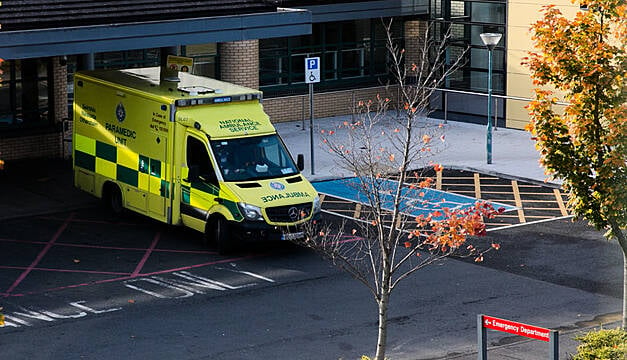A busy hospital struggled with an outbreak of a new variant of a dangerous superbug trying to manage patients who needed to smoke, medical students that ended up in a ward with infection, and allowing visitors for sick people.
Internal records said Tallaght University Hospital (TUH) in Dublin was dealing with a “very active and resistant outbreak” that could be associated with “significant morbidity and mortality”.
Hundreds of potential contacts were identified with progress reports saying there were “not many options” available to treat the variety of the CPE superbug that was spreading.
The outbreak was first notified to the board of the hospital in April this year and remained open until the end of August, a TUH spokeswoman said.
The progress reports detail some of the measures that were introduced including “visitors restricted unless end of life” and how 95 per cent of staff were compliant with hand hygiene training and that only those with this training should be allowed on the ward.
One update noted: “Leaflets to stop visitors coming from the atrium, leaflets to be distributed to patients, wording to be updated to advise patients to not leave the ward to go to the atrium (smokers will be a problem).”
Concerns were also raised over consultants who had visited the ward at the centre of the outbreak that were not “bare below the elbow”, that is they were wearing long sleeves, jewellery, watches, or other items that had the potential to carry infection.
Another note said: “Medical students doing exams were on [the ward] – the instruction was that they did not go [there]. [Staff member] to follow up with [colleague as to] why this happened.”
A spokeswoman for TUH said the superbug CPE and its various forms were on the rise nationally with their spread believed to be linked to a post-pandemic increase in foreign travel and the number of people coming from countries with a higher prevalence of the infection.
She said: “Increased screening and surveillance of CPE in excess of national recommendations is taking place and TUH currently screens over 600 patients a week, all patients are screened upon admission. Any inconclusive results are followed up with a repeated screen.
“Each time a patient tests positive, the patient is informed by the clinical team and a communication is issued to the admitting consultant and GP. When an outbreak is declared the hospital holds regular multidisciplinary outbreak control meetings to ensure all possible measures are taken to identify the source and reduce the risk of it spreading.”
The spokeswoman added that the hospital had also sought and received confirmation for an additional 72 acute inpatient beds, all single rooms, and were awaiting final funding approval.







